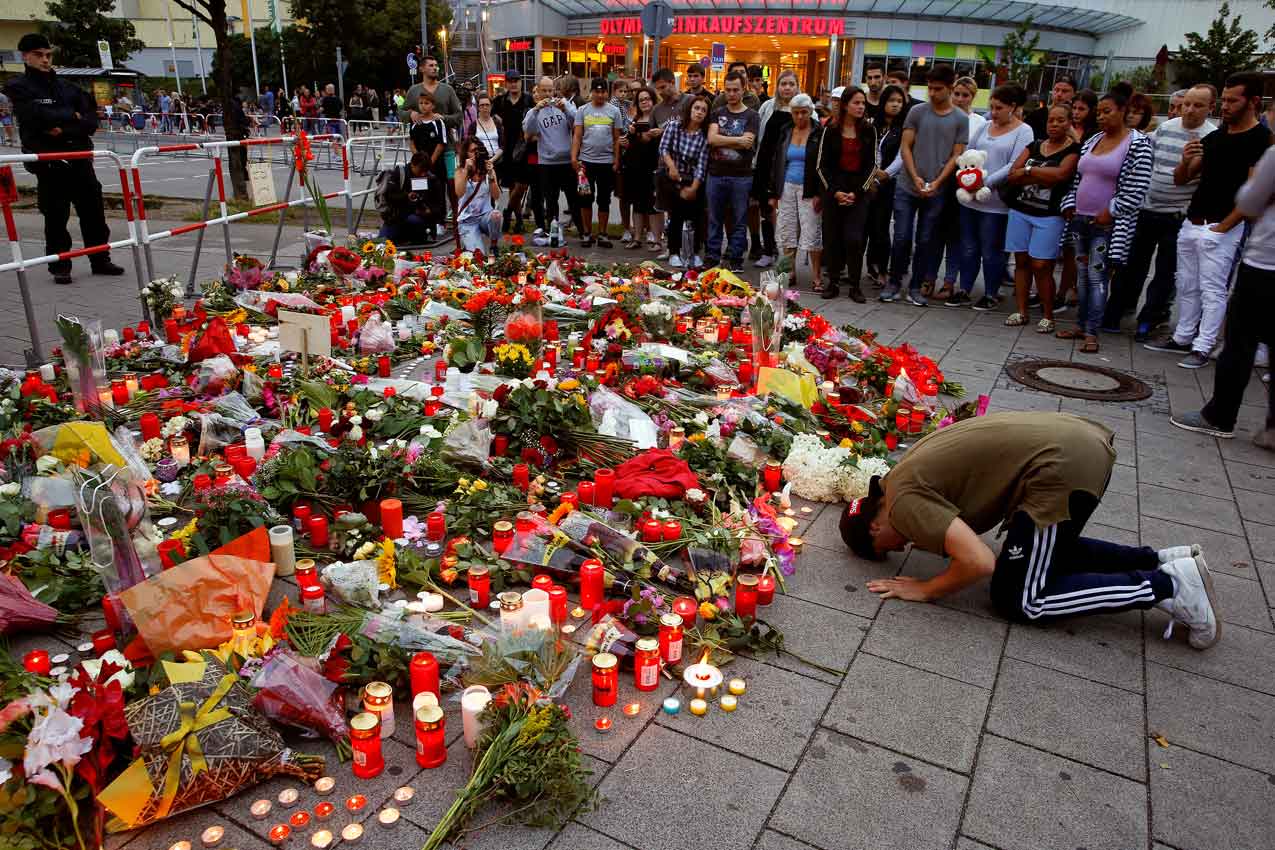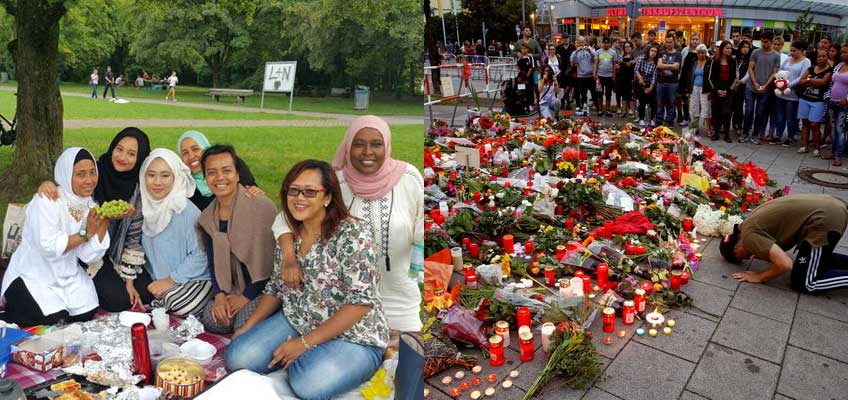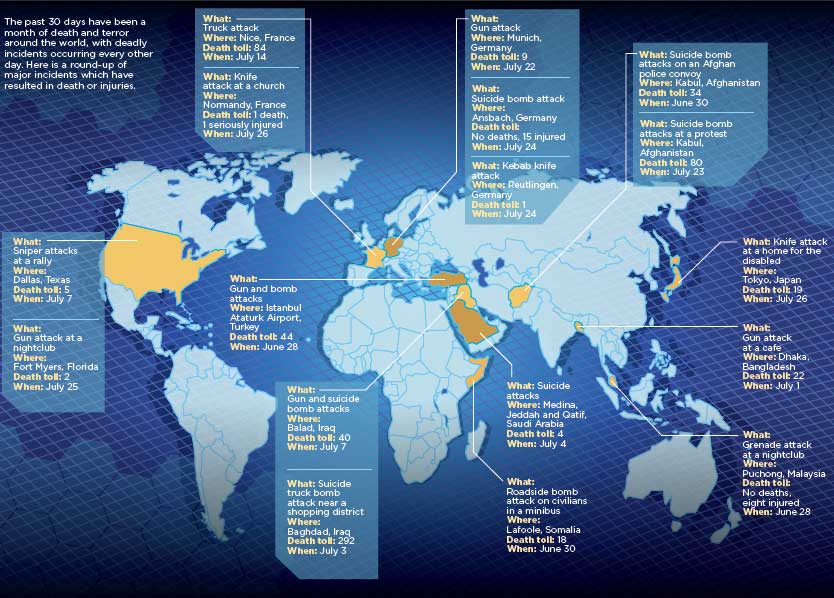Despite the recent terror attacks in Europe and the increasing level of hostility towards Muslims, Singaporean student Maahirah Mohammed has never been afraid to put on her tudung in public.
That is until last Friday, when an attack happened in Munich, Germany, where she is studying.
A teenage gunman opened fire at the Olympia shopping centre, killing nine people.
The mall is just five minutes by train from the flat where Miss Maahirah, 18, and her cousin, Miss Hanim Zaini, 18, have been living for the last 15 months.
Thankfully, they were on a picnic in the outskirts of the city with a group of friends when the shooting happened at around 6pm (midnight, Singapore time).
Miss Maahirah told The New Paper in a phone interview on Tuesday that she found out about the incident on Facebook as she was leaving the picnic.
She said: “I was quite shocked… because Munich is usually a very safe place. I kept thinking, ‘An attack? Here in Munich?'”
The shooting resulted in a shutdown of the city’s public transport system, leaving thousands stranded in the streets.
Mrs Norliza Asisi Maurer, 53, a fellow Singaporean at the picnic, dropped the cousins off at a tram station about 10 stops away from their flat, unaware that the trams were not running.
Miss Maahirah described the situation as confusing at first, and then gradually becoming more chaotic and tense as time passed.
“The streets were lined with people, and you could feel everyone’s frustration and anxiety,” she said.
There were also rumours that two other shooters were on the run, which added to the girls’ stress and paranoia.
The cousins, who both wear the tudung, were trying to figure out how to get home when an old man started yelling as he walked past them.
“He was pointing at us and shouting in our faces in German about ‘another terrorist attack again’, and cursing refugees and Islam,” said Miss Hanim.
The man walked away after his outburst and the girls quickly walked in the opposite direction.
“It was over very quickly, but we were so shocked and embarrassed as his voice was louder than the (din of the) crowd, so everyone was looking at us,” Miss Maahirah added.
The cousins said this was the second time they had been on the receiving end of anti-Islam sentiments.
Last year, while Miss Hanim was waiting at a traffic light junction, a woman made a rude gesture at her from across the street and called out anti-Islam comments.
Miss Maahirah said the shooting was the first time something had happened in Munich so now they are more concerned about their safety.
She said: “I’m scared of wearing my tudung out in public after getting yelled at like that.”
Unable to get home after the attack, the teens called Mrs Maurer, who is married to a German national and has been living in Munich for over 20 years. About half an hour later, she picked them up in her car.
ROADBLOCKS
But the journey home was not over.
The roads to their residential area had roadblocks, so they went to Mrs Maurer’s home, which was a 10-minute drive away from the tram station.
Miss Maahirah and Miss Hanim ended up spending the night there as public transport was unavailable throughout the night. Services only resumed at 4am so the girls returned home the next day.
Mrs Maurer, who helps her husband run a software company, said: “The locals here are usually very tolerant, and it’s very unfortunate that the girls were on the receiving end of someone’s frustrations.”
Miss Hanim’s family, who live in Saudi Arabia, frantically tried to reach her when they read about the shooting.
Her sister, Ms Yasmin Zaini, 22, told TNP: “We had just completed our umrah pilgrimage in Mecca and news of the shooting sent us into panic mode.
“We couldn’t reach my sister because her phone was off, but we found out that she was safe from Maahirah just a while later.”
While Miss Maahirah thinks that Munich is still a safe city, much like Singapore, she admitted she would not worry about her safety if such an attack happened in Singapore.
She said: “I don’t think Singaporeans would be hostile or look at us any differently.”

This article was first published on July 30, 2016.
Get The New Paper for more stories.





















































